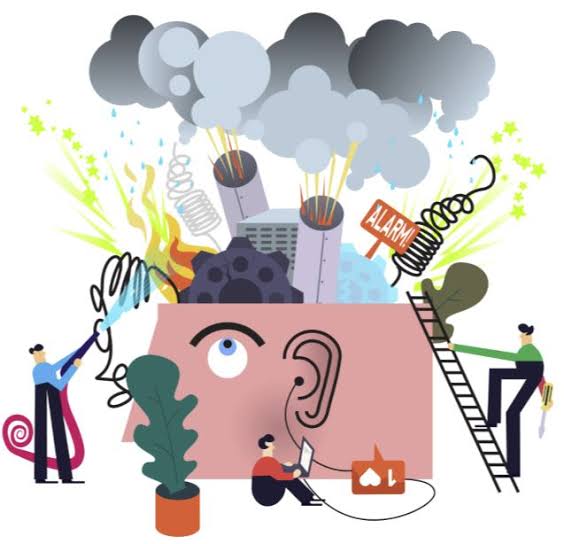#mentalhealth
#MentalHealthAwarenessMonth
Narcissistic Personality Disorder (NPD) is a mental health disorder characterized by a pattern of grandiosity, a constant need for admiration, and a lack of empathy for others.
Some key points about Narcissistic Personality Disorder:
#MentalHealthAwarenessMonth
Narcissistic Personality Disorder (NPD) is a mental health disorder characterized by a pattern of grandiosity, a constant need for admiration, and a lack of empathy for others.
Some key points about Narcissistic Personality Disorder:

🍄 Exaggerated sense of self-importance: Individuals with NPD often have an inflated view of their own abilities and achievements. They may believe they are special, unique, or superior to others.
🍄 Need for excessive admiration: People with NPD crave constant attention, admiration, and praise from others. They may seek out situations where they can be the center of attention.
🍄 Lack of empathy: Individuals with NPD have difficulty understanding and relating to the feelings and needs of others. They often disregard or minimize the emotions and experiences of others.
🍄 Sense of entitlement: People with NPD may have an unreasonable expectation of favorable treatment and may exploit others to meet their own needs. They may feel entitled to special privileges or exceptions.
🍄 Exploitative behavior: Individuals with NPD may exploit others for their own personal gain, without showing remorse or guilt. They may take advantage of others' vulnerabilities or manipulate them for their own benefit.
🍄 Envy and jealousy: People with NPD may harbor feelings of envy and jealousy towards others, particularly those who they perceive as more successful or accomplished. They may react with anger or resentment towards others' achievements.
🍄 Arrogance and haughty behavior: Individuals with NPD often display a sense of superiority and may come across as arrogant or condescending. They may belittle or demean others to maintain their self-perceived superiority.
🍄 Fragile self-esteem: Despite their grandiose self-image, individuals with NPD may have fragile self-esteem that is easily bruised. They may react with anger, shame, or humiliation when their perceived greatness is challenged.
🍄 Difficulty maintaining healthy relationships:People with NPD often struggle to maintain meaningful and fulfilling relationships.They may have shallow or superficial connections with others,using them for personal gain or discarding them when they no longer serve their purpose.
🍄 Fantasies of unlimited success, power, and brilliance: Individuals with NPD may have grandiose fantasies of unlimited success, power, or brilliance. They may believe they are destined for greatness and expect others to recognize and validate their superiority.
🍄 Lack of accountability and responsibility: People with NPD may have difficulty taking responsibility for their actions and may deflect blame onto others. They may engage in manipulative tactics to avoid facing consequences for their behavior.
🍄 Impaired interpersonal boundaries: Individuals with NPD may have difficulty respecting others' boundaries and personal space. They may intrude on others' privacy or overstep boundaries without regard for others' comfort or consent.
🍄 Co-occurring mental health conditions: NPD is often associated with other mental health conditions, such as depression, anxiety, substance abuse, or mood disorders. These co-occurring conditions can further complicate diagnosis and treatment.
🍄 Treatment challenges: Individuals with NPD often have limited insight into their own behavior and may be resistant to seeking help or changing their ways. Treatment typically involves psychotherapy, such as CBT or PDT, which focuses on developing self-awareness and empathy.
🍄 Impact on personal and professional life: NPD can have significant negative impacts on relationships, work, and overall well-being. It is important for individuals with NPD to seek appropriate support and treatment to improve their quality of life and relationships.
@threadreaderapp unroll
• • •
Missing some Tweet in this thread? You can try to
force a refresh

 Read on Twitter
Read on Twitter








